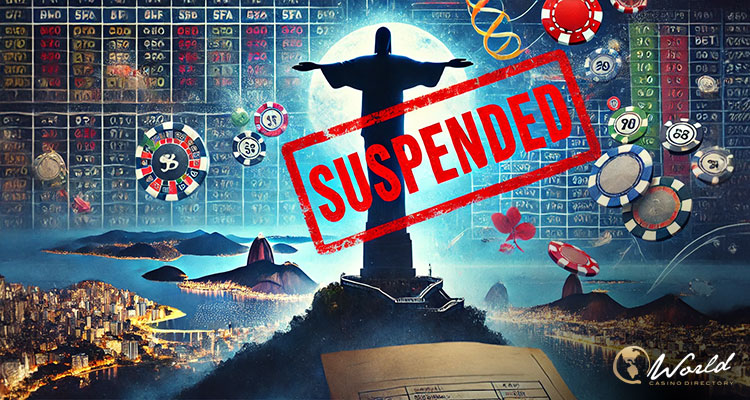The State Lottery of Rio de Janeiro (Loterj) has issued an ordinance suspending all betting operations beyond the state’s borders. This decision follows a ruling by Supreme Court Justice André Mendonça, who ordered the agency to comply with federal regulations limiting its jurisdiction. The new directive, published in the State Official Gazette on February 13, reinstates mandatory geolocation tracking to ensure that betting activities occur strictly within Rio de Janeiro.
Loterj has been attempting to overturn Mendonça’s decision since January but faced setbacks after multiple appeals were denied. The ruling enforces daily fines of R$500,000 (US$87,000) on the agency if non-compliance continues. Additionally, Loterj President Hazenclever Lopes Cançado could personally face a fine of R$50,000 (US$8,700) per day for failing to adhere to the order.
The Supreme Court’s ruling was prompted by a lawsuit from the Attorney General’s Office (AGU), which argued that Loterj’s licensing model undermined federal oversight, according to Games Magazine Brazil. The AGU expressed concerns that permitting state-level accreditation without national regulatory safeguards could pose risks to responsible gaming, financial stability, and cybersecurity, while also complicating anti-money laundering efforts.
Implementation of Geolocation Tracking
Loterj’s latest ordinance (Loterj/GP No. 658) directly addresses the Supreme Court’s requirements. Under Article 1, all licensed operators must immediately cease operations outside Rio de Janeiro. Furthermore, Article 2 stipulates that only companies capable of proving compliance with geolocation tracking measures can continue operating.
The directive mandates that accredited operators implement geolocation tools to prevent users from placing bets outside state borders. Failure to demonstrate compliance will result in the suspension of their operating authorizations and potential additional penalties. The ordinance remains in effect as long as the Supreme Court’s injunction is in place.
Federal and Industry Reactions
Loterj’s move to suspend nationwide operations comes amid legal uncertainty regarding state-level betting regulations. Prior to the Supreme Court’s intervention, Loterj-authorized operators could accept bets nationwide while paying significantly lower licensing fees compared to federal counterparts. While a federal betting license costs R$30 million (US$5.2 million), Loterj’s authorization required only R$5 million (US$867,000). Additionally, while the Ministry of Finance imposed an 18% gross gaming revenue (GGR) tax on federally licensed operators, Loterj licensees benefited from a lower 5% tax rate.
Legal experts, including Udo Seckelmann of Bichara e Motta Advogados, had previously warned operators about the risks associated with Loterj’s model. He noted that despite its lower costs, uncertainty surrounding the legality of state-issued licenses made them a risky alternative to federal accreditation.
The Brazilian Institute of Responsible Gaming (IBJR) has also voiced concerns over Loterj’s regulatory approach. The organization recently sought to join the Supreme Court case as an “amicus curiae,” arguing that geolocation tracking technologies already exist to ensure compliance with jurisdictional restrictions.
The Supreme Court is set to conduct a virtual trial on the matte running through February 21. The outcome could determine whether Loterj will regain the ability to expand its licensing model beyond Rio de Janeiro or if federal regulations will continue to limit its jurisdiction.


